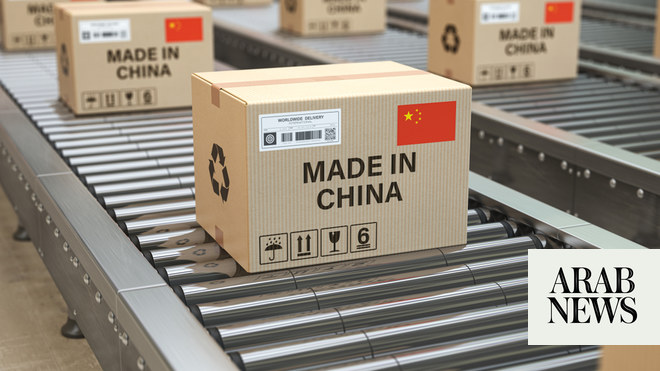
BEIJING: Annual profits at China’s industrial firms extended a double-digit decline in the first five months as softening demand squeezed margins, reinforcing hopes of more policy support to bolster a stuttering post-COVID economic recovery.
The 18.8 percent year-on-year slump in profits came on top of the 20.6 percent contraction in January-April, and added to evidence of an economy that was losing steam on many fronts in May including retail sales, exports and property investment as the youth jobless rate scaled a fresh high of 20.8 percent.
Last month alone, industrial earnings contracted by 12.6 percent from a year earlier, according to data from the National Bureau of Statistics released on Wednesday. Profits were down 18.2 percent in April.
“The still slow recovery in industrial profits pointed to sustained difficulties facing business operations,” said Wu Chaoming, deputy director of the Chasing International Economic Institute.
Wu said the corporate struggles strengthen the case for more policy measures to help companies.
Offering some hope of a turnaround, auto manufacturers saw a doubling in year-on-year profit in May, although the jump partly reflected the poor performance last year when COVID curbs took a heavy toll on business.
“As the external environment becomes increasingly complicated and severe, domestic demand still appears to be insufficient, weighing on further recovery in industrial profits,” said NBS statistician Sun Xiao in an accompanying statement, noting that the foundation for a revival in industrial profits is still not solid.
Foreign firms recorded a 13.6 percent decline in earnings in January-May, while private-sector companies posted a 21.3 percent slide, according to a breakdown of the data.
Profits sank for 24 of 41 major industrial sectors during the period, with the petroleum, coal and fuel processing industry reporting the heftiest slump at 92.8 percent.
Chinese stocks were largely in the red in the morning session, but pared some losses in afternoon trading, leaving the main indexes mixed.
More policy support
The patchy recovery in the world’s second-biggest economy has prompted S&P Global, Goldman Sachs and other global agencies to ratchet down their China growth forecasts for this year in recent weeks.
Many economists expect policymakers to deliver more support measures to stabilize the economy as it faces pressure at home and softening demand in its major overseas markets.
To shore up the faltering rebound, China last week cut its key lending benchmarks for the first time in 10 months. It also unveiled a 520-billion-yuan ($72 billion) package of purchase tax breaks on new-energy vehicles through the end of 2027.
In his keynote speech to the Summer Davos Forum in Tianjin on Tuesday, Premier Li Qiang said China will roll out more effective policy measures to expand domestic demand.
China’s second-quarter economic growth will be higher than that in the first quarter, Li said, adding that it’s expected to achieve the 2023 growth target of around 5 percent.
Still, the government has taken a cautious approach to reviving the economy amid lingering concerns over local government debt and other longer-term risks.
Industrial profit numbers cover firms with annual revenues of at least 20 million yuan from their main operations.
China will release its second-quarter gross domestic product growth data in mid-July.












